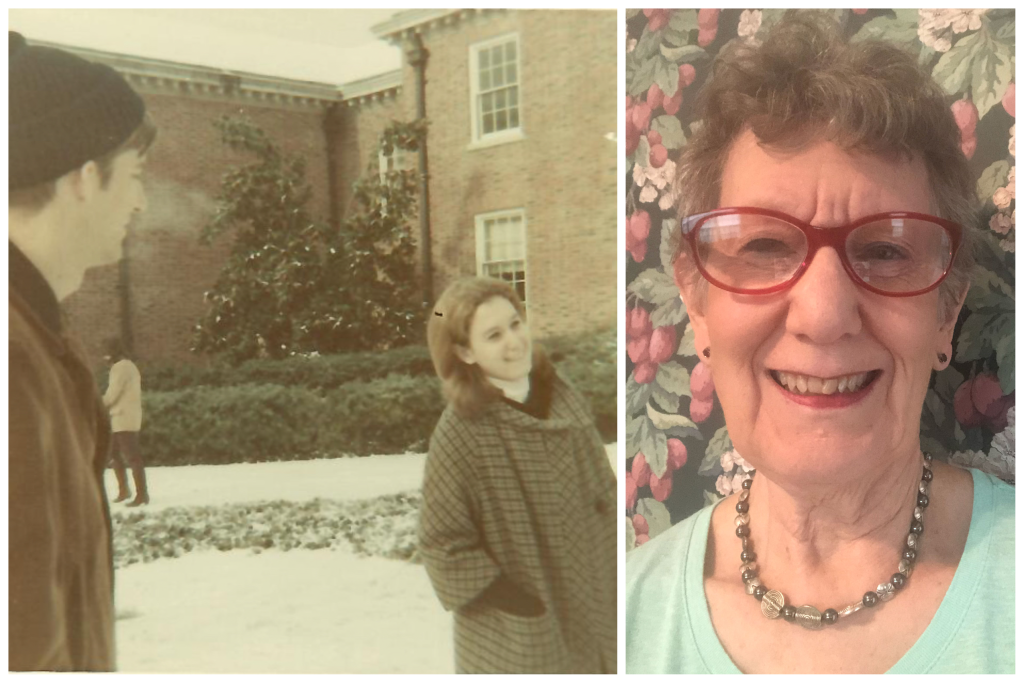“I have great affection and respect for the graduate education I received at UNC, and the idea of simultaneously paying it back and paying it forward appealed to me.”

The department is fortunate to have many generous alumni donors, who help fund programs and scholarships which benefit students. However, alumni donors (and unaffiliated prospective donors) typically focus their attention on their undergraduate programs’ institutions which makes graduate donors a bit rarer. One such donor is Marcia Citron, Ph.D. 1971 and Emerita Lovett Distinguished Service Professor of Musicology at Rice University, where she taught for most of her illustrious career.
Dr. Citron has generously established the Marcia J. Citron Graduate Research in Musicology Fund designated for Ph.D. candidates nearing the end of their time at Carolina in hopes that this extra funding for research will help them complete their degree. Citing her own time at UNC and the support she received from faculty as much of the reason for establishing the fund, Dr. Citron also noted how impressed she has been over the years with the quality of scholarship by UNC’s graduate musicology students.
The first students to receive funding from this new fund will be selected for the upcoming academic year, and the department is thankful for the positive effect this funding will have on the students chosen this year and in the years to come. Most graduate funding comes in the form of teaching fellowships and travel grants. At this critical time in graduate students’ final dissertation research and writing, this funding will help enable them to do things such as step away from teaching, acquire materials for their dissertation research, or take that one final research trip needed to finish their dissertation.
“Professor Marcia J. Citron was a groundbreaking scholar, forging the field of women, feminism, and music in musicology. As an alumna of the Graduate Program in Musicology in the Department of Music, her immense contributions to the discipline of musicology are particularly important to UNC,” remarked department chair, and former Director of Graduate Studies, Dr. David Garcia. “I am grateful to Dr. Citron for establishing the Marcia J. Citron Graduate Research in Musicology Fund, which will provide critical funding for advance graduate students who are nearing the last stage of their graduate work in the program. Her legacy in the Department of Music will continue for generations to come.”
In anticipation of announcing the first recipients of the Marcia J. Citron Graduate Research in Musicology Fund, we reached out to Dr. Citron to learn more about what inspired her to create this fund, the impact she hopes it will have on students at UNC, and to catch up on her illustrious career since her time in Chapel Hill.
UNC Music: Tell us a little bit about yourself and your career.
Dr. Marcia Citron: I’ve focused on two main research areas: women and music, and opera and the media. I came into women & music in the early-mid 1970s, when feminism generally was sweeping the US and musicology was making initial forays into neglected women. My first project was on female composers of Lieder. Fanny Mendelssohn Hensel was one of them, and I became excited by her life, milieu, and music. Besides several articles, my interest led to a book-length edition of her letters to her brother Felix Mendelssohn (1987). Next, I switched gears to France and delved into the once extremely popular composer Cécile Chaminade. Using primary documents & manuscripts in the family’s possession, I published a Bio-Bibliography of Chaminade (1988).
Meanwhile, like scholars in other disciplines, I became intrigued by the urgent questions surrounding canonicity and canon formation—for music, the fundamental issue of how one becomes a composer and how a reputation is formed and passed on, all with an eye to gender. This resulted in Gender and the Musical Canon (1993, reprinted with new introduction 2001). It won the best book award from the International Alliance for Women in Music and, I’m proud to say, has become a classic of feminist musicology. It’s a high point of my career.
Soon I turned to opera and film, which grew out of the practical situation of teaching about opera in the classroom. My first book on the topic, Opera on Screen (2000), laid out basic principles of the opera-cinema and opera-TV intersection, and treated key opera films in depth. A decade later came my second book, When Opera Meets Film (2010), where the medial landscape also included opera in regular films, as in The Godfather trilogy. Opera and the media is still my main research area, and it’s been gratifying to see the field expand as it targets new combinations, venues, technologies, and musics.
I received a lifetime achievement award from the American Musicological Society in 2012 in the form of Honorary Membership.
I received my doctorate from UNC in 1971 and taught continuously until my retirement from Rice University (Shepherd School of Music), where I was a faculty member from 1976 to 2015 and awarded an endowed chair in 1999 (Lovett Distinguished Service Professor of Musicology). Now I’m “Emerita” with that title.
Piano is my performing area. I play by ear (always have), and I started formal lessons at age 6. I’ve played ever since, and in retirement I’ve had the chance to practice regularly, improve technique, and learn new repertoire, including doing chamber music with a violinist. It’s been tremendously satisfying.

UNC Music: What inspired you to establish the Marcia J. Citron Graduate Research in Musicology Fund?
Dr. Citron: There are many reasons. I have great affection and respect for the graduate education I received at UNC, and the idea of simultaneously paying it back and paying it forward appealed to me. As a career professor I’m obviously a great believer in education, and supporting musicology going forward is a “no brainer.” At UNC I was supported with fellowships all four years in residence, and believe that grad students in the humanities, which include musicology, should be supported financially.
Before I made my decision on what to fund in UNC musicology, I saw there was a need for greater support for doctoral students in the later years of their program. That gave me the initial idea, and after I spoke to a few of UNC’s musicology faculty the decision was clear. I purposely fashioned the Fund so that it’s open to all areas within musicology, not restricted, say, to my own interests. This is crucial, as musicology is now a very big tent and promises to expand further.
And finally, in January 2020 I attended a conference in Fort Worth on opera and heard some papers by current and former UNC musicology grad students. I was very impressed. And when I asked if additional graduate funding was needed, they said “Yes, it definitely was.”
UNC Music: What do you hope students will be able to accomplish with this funding?
Dr. Citron: The idea is that worthy students will be able to use the funds for materials and/or travel related to their dissertation project. Funding by this point in their graduate schooling is often hard to come by, and the Fund will help defray expenses associated with their research.
UNC Music: What do you envision the broader impact of the fund being on the graduate program in the UNC Department of Music?
Dr. Citron: One hope is that it will assist in recruiting the best students into the doctoral program in musicology. As a state school, UNC depends on the legislature for its budget, which makes it harder to compete for the top students who are offered more money at private institutions. UNC boasts an outstanding musicology faculty—there’s none better anywhere—yet top students tend to gravitate to the Ivies and ignore other programs. Perhaps the additional funding for dissertation research can help attract the top students to UNC.
Another hope is that the Fund will encourage other musicology alumni or members of the larger UNC community to contribute to the graduate program in musicology. As I understand it, prospective donors to universities are much more likely to consider undergraduate programs in their giving plans, and the Fund might help focus attention on the graduate program.
UNC Music: Is there anything else you’d like readers to know about you or this new fund?
Dr. Citron: I had full support and encouragement as a budding women musicologist when I was at UNC. In the late 1960s/early 1970s there were few female musicologists in the field; it was still a male domain. In this regard, I know of a very prominent university at the time where a brilliant female student whom I knew well from undergraduate days was told plainly that as a woman she had no business pursuing a musicology doctorate; she quit! I never experienced that at UNC. Quite the opposite: My mentor, William S. Newman, was always fully supportive and actively helped me get jobs. The same was true for Howard Smither.

by Catherine Zachary, ’10
